Poor air quality, frequent flooding, droughts and scarcity of clean water have led young Indian couples to choose not to have kids, because they don't see a future for them.
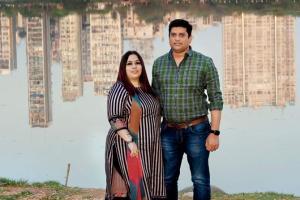
Navi Mumbai-based chef Reetu Uday Kugaji, who has been married for 17 years, says that friends have often laughed at her and husband Uday, when they attributed not having children to climate change. Pics/ Sameer Markande
Sixty kilometres. That's the distance 39-year-old Shanu John, commutes daily from Thane to his Nariman Point office. He leaves at 8 am, and is rarely home before 9 at night. His wife, Devina John, 34, commutes half the distance, but it's just as deplorable, she says. Yet, the couple won't move any closer to the city. In fact, after spending four-and-a-half years in an apartment right next to the Sanjay Gandhi National Park, near Thane West, the duo moved another four kilometres away, into a property where they have been "assured that no other construction is going to happen". "We have a nice view of the creek, and there are paddy fields right outside," says Shanu, a digital marketing professional. Their decision, though hard on them, is a prudent attempt to secure their five-year-old son, Ethan's future.
ADVERTISEMENT
Before the couple became parents, they had, on several occasions, debated about the kind of "unsafe world" they would be leaving for their child. They eventually caved in to the obligations of a married couple, and Ethan was born. "But even in the last five years [since his birth], nothing has changed. In fact, it's only getting worse," adds Shanu. While the young parents are determined to work very hard to make life easy for their son, they are equally determined not to bring another child into a world that is staring at doomsday. "The system is creaking under the pressure. It's not just about having kids, but also wondering whether you have enough resources for them," says Shanu. "Devina and I have this conversation at least once a month, where we ask each other, what kind of world our son is going to find himself in. Frankly speaking, while we think that the world is stable, our system is very delicate, and it takes just one conflict for everything to collapse. Given the conflict that is starting for water and fuel, I think we will soon have to worry about where this is all heading," he says, despondently. Devina and Shanu are among the growing breed of Indian couples, who are consciously resisting social norms, because it's no longer environmentally conducive.
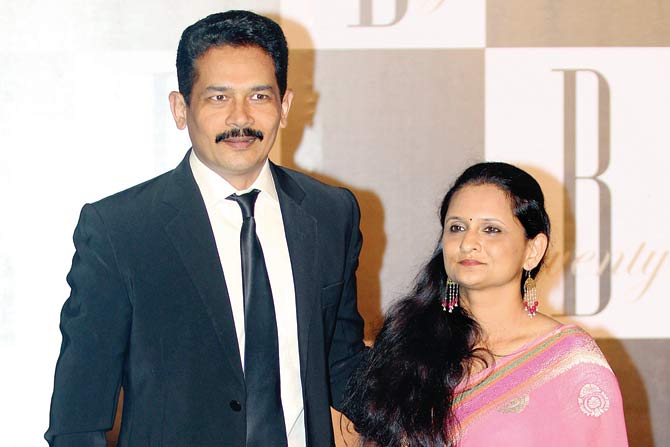 Theatre and film actor Atul Kulkarni, married to actor Geetanjali Kulkarni for the last 23 years, also cited the deplorable environmental condition as just one among many other reasons for not having children of his own. Pic/ Yogen Shah
Theatre and film actor Atul Kulkarni, married to actor Geetanjali Kulkarni for the last 23 years, also cited the deplorable environmental condition as just one among many other reasons for not having children of his own. Pic/ Yogen Shah
Early last year, a voluntary organisation called BirthStrike in the UK, took social media by storm. Far removed from anti-natalism—a philosophical position and social movement that argues that giving birth is immoral, because the world is a bad and painful place to be in and that the child doesn't have a say in being part of it—BirthStrikers' stand in solidarity with parents who do not want to bear children "due to the severity of the ecological crisis and the current inaction of governing forces in the face if this existential threat". Those who have signed up to BirthStrike are raising awareness by saying this is now affecting the human ability and desire to give birth.
Delhi-based Anika Verma and her husband Rachit Varma, may not have heard of BirthStrike, but they share the same sentiments. A 33-year-old digital marketing professional, Anika always had a phobia of childbirth, and claustrophobic, polluted East Delhi wasn't helping. "I remember in my early 20s, there was a lot of talk about global warming, and what would happen to the next generation due to this. I could never connect it to myself. I think it became a little more personal when we [Rachit and I] got together, and talked about having children," says Anika.
Rachit, whom she dated for three years, before getting married, wasn't insistent on the idea either. "I was raised in a traditional middle-class Indian household in Delhi. I have an elder sister and ours is a regular family. Growing up, I always thought that I'd get married and have two kids. But, my ideas slowly began to evolve," recalls Rachit, over a telephonic interview from Bengaluru, where he works as a marketing professional.
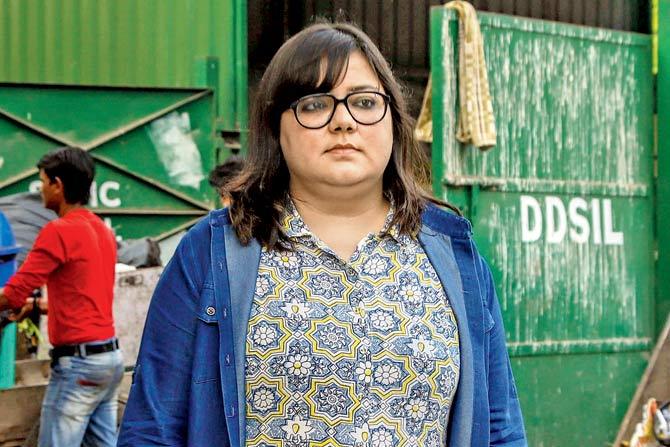 Delhi-based Anika Verma and her husband Rachit Varma say they have discussed their stand of not having children, with those willing to listen. "The older generation is a little resistant, but the younger lot is more forthcoming," says Anika. Pic/ Nishad Alam
Delhi-based Anika Verma and her husband Rachit Varma say they have discussed their stand of not having children, with those willing to listen. "The older generation is a little resistant, but the younger lot is more forthcoming," says Anika. Pic/ Nishad Alam
The couple has been married for five years, and with each passing year, they have only become more resolute about their decision. For Rachit especially, the Diwali of 2016 in his home city was the biggest eye-opener. "My colleague, his wife, and two-year-old son were out for a stroll, and the entire family was wearing masks, including the kid. This does not make for a happy family photo at all," he says. "The impact of this won't be felt now. Today, you will fall sick every two months or have a viral, but in the long run, 20 years from now at least, we will see the impact in each one of us. Why should I subject a kid to that?" Rachit asks.
Media professional Charishma Thankappan, who moved to Bahrain recently, said that while there are a host of reasons why she and her husband, Prasanth Nair, don't want to bear children, climate change really is the deal breaker. "Indian cities are increasingly becoming uninhabitable, thanks to the rise in pollution of all sorts—air, noise, water and land. I was born and brought up in Delhi, and the current state of the national capital is such that it is a threat to life for the present adults owing to its despicable air quality. Having lived in Mumbai for two years, I did not find any difference in the air pollution levels either. Allergies and respiratory illnesses have increased substantially over the years and even those adults who never had it, are now affected, so, one can only imagine the effect on children. My husband is already allergic to dust and pollen and I have recently developed an intolerance for smoke. I feel we would be passing down weaker immune systems to our children," she shares.
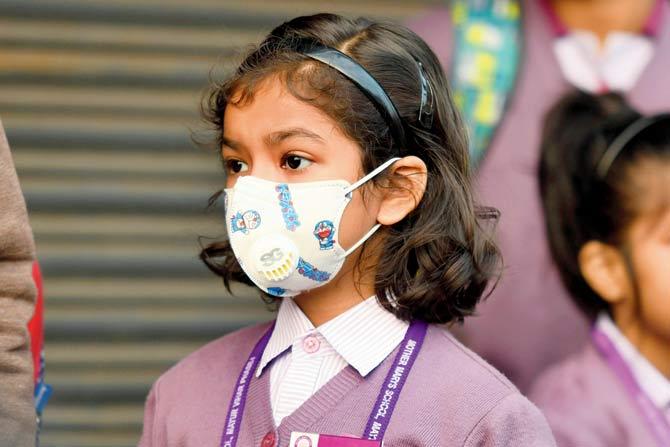 Children are seen wearing masks to school, on November 18 last year in New Delhi. The air quality at 9 am that day stood at 207, a drop from the previous day. Pic/Getty Images
Children are seen wearing masks to school, on November 18 last year in New Delhi. The air quality at 9 am that day stood at 207, a drop from the previous day. Pic/Getty Images
A new idea is always met with some condescension. Navi Mumbai-based chef Reetu Uday Kugaji, who has been married for 17 years, says friends have often laughed at her and husband Uday, when they said that they did not want to raise a child in such a hostile environment. "They asked, 'Why are you giving the balidan?'" recalls Reetu, adding, "But, this is not a sacrifice, this is what we are bound to do for our planet. If we don't do it, we are the ones who will suffer. All of us need to start thinking like that."
Reetu remembers how Palm Beach Road, where she was raised in a big Punjabi family, once actually overlooked the beach. Some decades ago, when Navi Mumbai became the new affordable urban township, people started trickling in from Mumbai, by the dozen, and the entire stretch got gentrified. "Today, it has become a concrete jungle," she says. "When we moved into our home in Kamothe, we thought there would be walking space and fresh air, but suddenly we found a tower come up, right in front of our building. Basic resources are also a problem. We have an RO fixed because we know the water quality is so bad. The pressure of water is a problem, too. There are electricity cut-offs for an entire day on Tuesday. If we don't have fresh air, water and space, what are we going to give our children?" she asks. Uday, a sales professional, says it's hard to explain to people, because there's very little awareness of the same. "But our families have been supportive," he says.
Anika and Rachit have gone the extra mile, and even discussed their stand with those willing to listen. "The older generation is a little resistant, but the younger lot is more forthcoming," says Anika. "During Delhi's smog-filled winters, we have seen friends and relatives keep their children indoors. They sit in front of the television with air purifiers on. We ask them if they are okay with this. None of them have an answer to that," she adds.
![Shanu John and his wife Devika had, on several occasions, debated about the kind of “unsafe world” they would be leaving for their child. They eventually decided to have a baby. “But even in the last five years [since their son Ethan was born], nothing has changed. In fact, it’s only getting worse,” says Shanu](https://images.mid-day.com/images/images/2020/mar/Devina-Shanu.jpg) Shanu John and his wife Devina had, on several occasions, debated about the kind of "unsafe world" they would be leaving for their child. They eventually decided to have a baby. "But even in the last five years [since their son Ethan was born], nothing has changed. In fact, it’s only getting worse," says Shanu
Shanu John and his wife Devina had, on several occasions, debated about the kind of "unsafe world" they would be leaving for their child. They eventually decided to have a baby. "But even in the last five years [since their son Ethan was born], nothing has changed. In fact, it’s only getting worse," says Shanu
Freelance writer Manali Manan Desai, feels that she'd rather adopt a child, than add to the growing population. "My husband [Manan] also feels the same. The world is experiencing a downward spiral with regards to the environment, and there has been no positive news in the last five years, at least. I don't think that is going to change. We'd rather give a better life to someone, who is already out there, and deserves a chance."
Theatre and film actor Atul Kulkarni, married to actor Geetanjali Kulkarni for the last 23 years, also expressed concern for the environment, saying that we are long past asking whether we are staring at a crisis situation.
Citing it as just one among many other reasons for not having children of his own, he says, "There are two aspects to this. First, one needs to understand what kind of world they are bringing the child into. Second, the moment the child is born, consumption begins." This, he says, puts a strain on existing resources. "Also, if you read what anthropologists have to say, you will realise that we have far too many human beings on Earth. It's an unnatural number of people that is living together. We are already stretched and this is reason enough [to keep a check on the population]. Not having children then, is an encompassing thought, and should not just be tied just to the environment alone."
In the past, studies have suggested that having "one fewer child, could have a high impact in reducing carbon emissions". In fact, in a 2017study published in the scientific journal Environmental Research Letters, researchers equated it to a reduction of at least 58.6 tonnes of CO2 for each year of a parent's life.
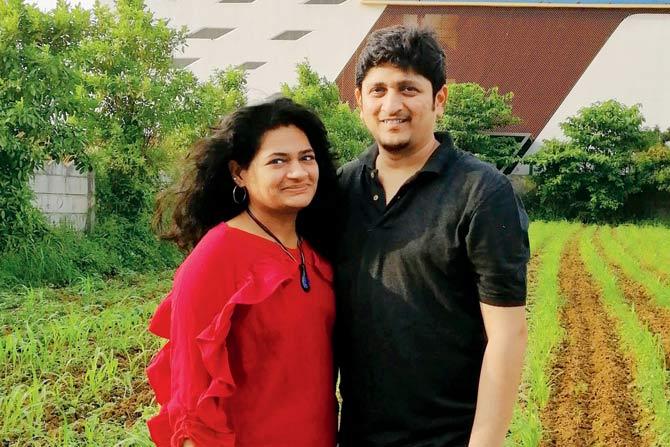 Freelance writer Manali and her husband Manan Desai, are planning to adopt a child, than add to the growing population
Freelance writer Manali and her husband Manan Desai, are planning to adopt a child, than add to the growing population
However, a Climate and Lifestyle Report, written by researchers John Halstead and Johannes Ackva for Founders Pledge, a London-based non-profit, earlier this month, claimed that though having "one fewer child" does reduce carbon emissions, it will not really save the climate.
According to the researchers, most studies on the climate impact of various lifestyle decisions, don't account for "likely changes in government policy in the future". But, because many "advanced nations have legally binding climate targets and/or carbon pricing schemes that commit them to decarbonisation," the climate policy will almost certainly get much stricter over the course of the next generation's lifetimes, the Founders Pledge researchers say. This means that other lifestyle changes, like using electric cars, green electricity, recycling, switching to plant-based diet etc, could have a greater impact, too.
Ultimately, it's also about giving couples agency. "This agency allows them to make the choice of not having kids, because they do not want to load the planet. This idea of children being old-age security is no longer tenable. That was a traditional mindset, and that doesn't hold water anymore," says Dr Sam Taraporevala, the head of the department of sociology at St Xavier's College. "There is also an increased awareness among middle-class and affluent Indians, and that is changing a lot of things."
Catch up on all the latest Mumbai news, crime news, current affairs, and also a complete guide on Mumbai from food to things to do and events across the city here. Also download the new mid-day Android and iOS apps to get latest updates
 Subscribe today by clicking the link and stay updated with the latest news!" Click here!
Subscribe today by clicking the link and stay updated with the latest news!" Click here!






